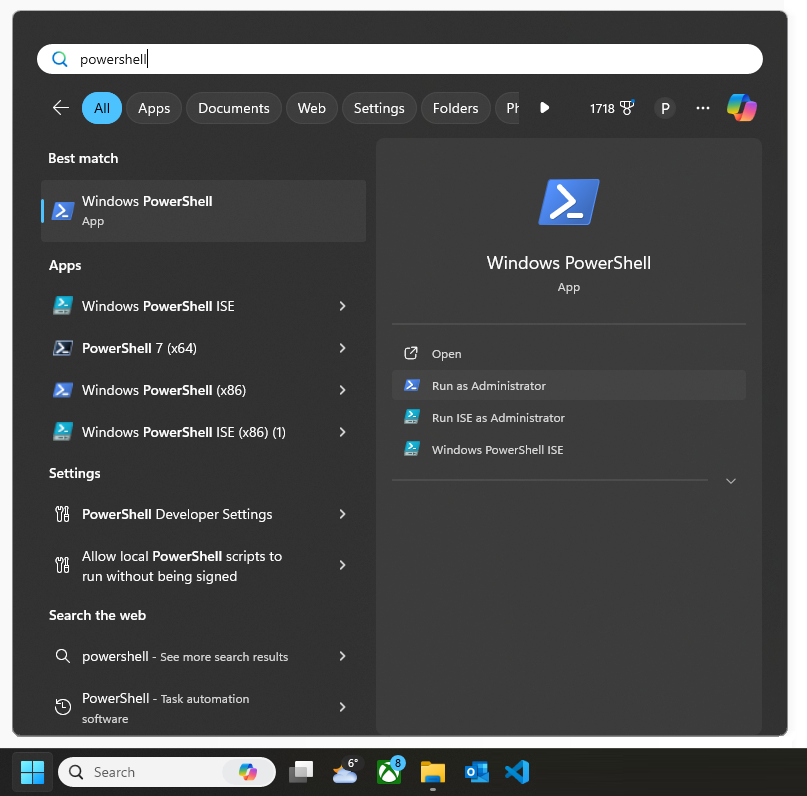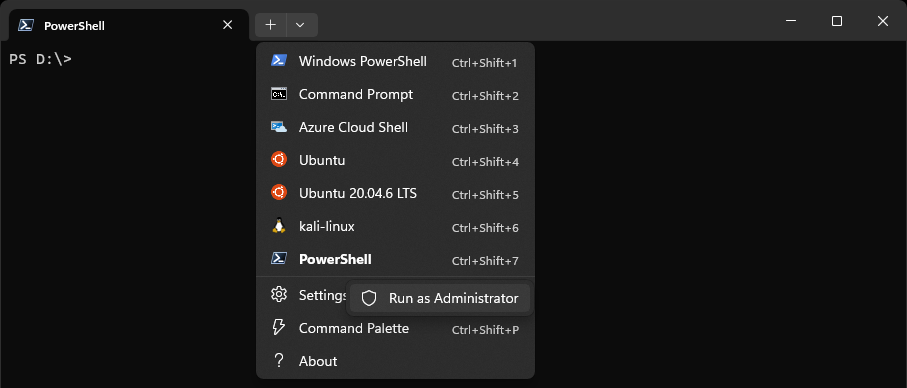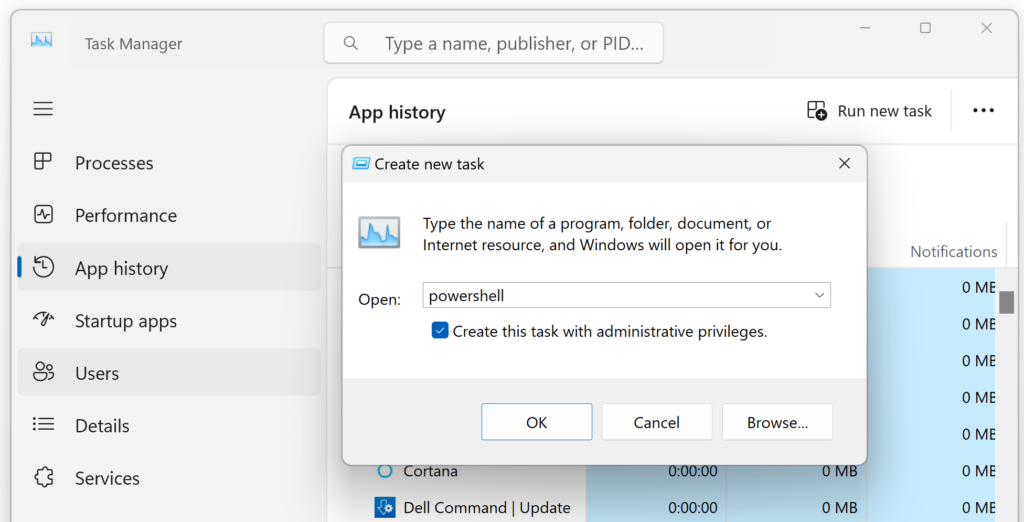This post covers most various ways for how to open PowerShell as Administrator on Windows, ensuring you have the necessary permissions for advanced operations.
Running PowerShell commands with elevated privileges is often necessary when configuring system settings, installing software, or troubleshooting issues. I think most tasks in my PowerShell Scripts Blog Post Tag need this elevated access which might be good for reference.
Methods Covered in This Guide:
1. Open PowerShell as Administrator by Command Prompt
2. Open PowerShell as Administrator Using the Start Menu
3. Open PowerShell as Administrator with Windows Terminal
4. Open PowerShell as Administrator Using Task Manager
1. Open PowerShell as Administrator by Command
The following is a very quick way to open PowerShell as Administrator, from a PowerShell Terminal window:
# open powershell as administrator Start-Process powershell -Verb runas

A User Account Control (UAC) prompt will appear, click Yes to confirm and the PowerShell Admin terminal will open.
2. Open PowerShell as Administrator Using the Start Menu
Next up, we’ll open PowerShell as Admin using the Start Menu:
Windows 10/11:
1. Hit the Windows Key.
2. Type PowerShell in the search bar.
3. Click Run as Administrator when the option appears.

Windows 8:
1. Click the Start button and type PowerShell.
2. Right-click Windows PowerShell and select Run as Administrator.
Windows 7:
1. Click Start and navigate to All Programs > Accessories > Windows PowerShell.
2. Right-click Windows PowerShell and choose Run as administrator.
3. Open PowerShell as Administrator with Windows Terminal
Windows Terminal is the terminal app for PowerShell on Windows 11. Check out my other post for a quick guide for installing Windows Terminal on your machine.
To open PowerShell as Administrator using Windows Terminal:
1. Open Windows Terminal.
2. Hold CTRL and click the + (plus) icon in the top bar (if PowerShell is the default shell).
3. Alternatively, right-click Windows Terminal and select Run as administrator.

4. Open PowerShell as Administrator Using Task Manager
Lastly, here’s an alternative option sometimes useful if you’re stick with no other option available. We’ll open PowerShell as Admin via Task Manager:
1. Press Ctrl + Shift + Esc to open Task Manager.
2. Click Run New Task.
3. Type PowerShell, check Create this task with administrative privileges, and click OK.

Hope all this was useful for you!
Leave a Reply